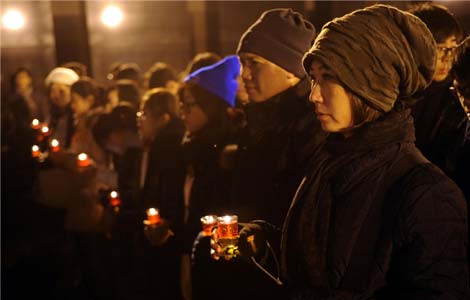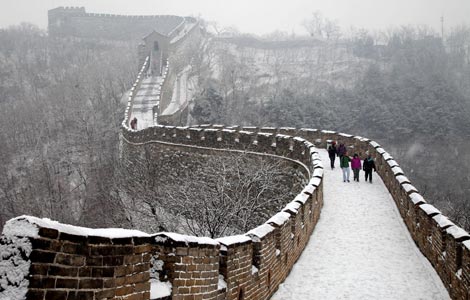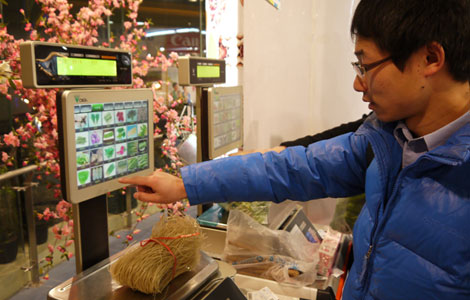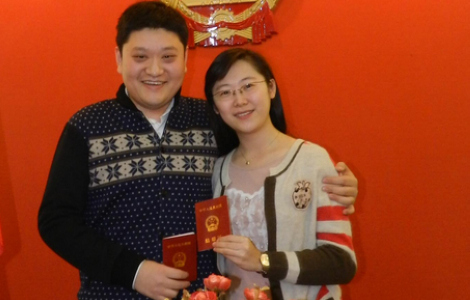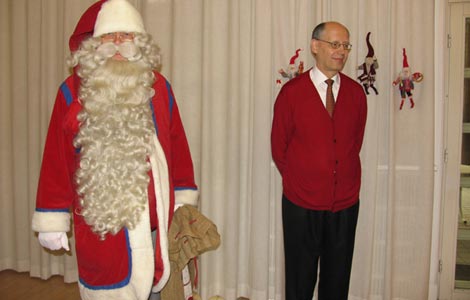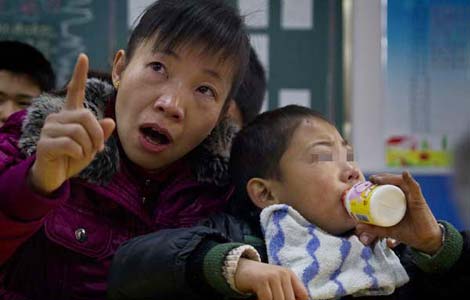
|
Richard Saint Cyr, a physician at Beijing United Family Hospital and Clinics, donates blood in a blood-collection vehicle in Chaoyang district of Beijing on June 4. Provided to China Daily |
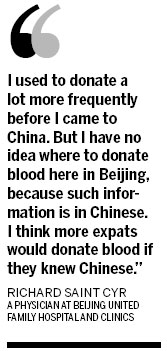
Surge assists Red Cross in meeting demand for rare Rh negative type
People from the expatriate community in Beijing have donated blood more than 500 times since 1998, and have helped ease the shortage of Rh negative blood, according to the Beijing Red Cross Blood Center.
This is the first time health authorities in China have released figures on blood donations from foreign donors.
Currently, about 200,000 expats live in Beijing, according to the latest population census.
Nationwide data for blood donations by expats was not available, according to the Ministry of Health.
"There have been 526 blood donations from expatriates in Beijing, according to the database in the center," Liu Jiang, head of the Beijing blood center, told a news conference on Tuesday to mark World Blood Donor Day, which falls on June 14 each year.
"The big surge in the number of foreign donors has mainly taken place since 2008, when we put great efforts into guaranteeing the reservation of rare types of blood, particularly the Rh negative, for the Beijing Olympics," he told China Daily.
Only three out of every 1,000 Chinese people are born with Rh negative blood, but in much of Europe, negative blood types are seen in about 15 percent of the population, according to medical research.
Sun Fei, who heads the laboratory center of Beijing United Family Hospital and Clinics, told China Daily that their hospital has helped the Beijing Red Cross Blood Center organize blood donations among expats since 2002.
So far, expats have donated 1,500 bags of blood (200 ml per bag) via blood drives, and many of the donations were Rh negative, she said.
"Most of them are quite willing to pull up their sleeves, and whenever we issued an emergency call for certain types of blood, particularly Rh negative, many responded at once," she said.
To help ensure the supply of Rh negative blood for clinical use, the hospital even organized a volunteer group of several hundred expats, mostly Westerners.
Richard Saint Cyr, a physician at Beijing United Family Hospital and Clinics, donated blood on June 4 after receiving an emergency call that a female expatriate was delivering a baby and needed Rh negative blood.
That was the first time he has donated blood in China, and he said he would like to continue donating in the future. "I used to donate a lot more frequently before I came to China. But I have no idea where to donate blood here in Beijing, because such information is in Chinese. I think more expats would donate blood if they knew Chinese."
Brendan O'Kane, who left the United States for China nine years ago and now works as a translator in Beijing, said there are many reasons for the seemingly low number of blood donations from expats in China.
In the US, blood donation drives are usually organized at places like schools, he said. "But here in Beijing, foreigners live out of such systems, so we got fewer chances to donate blood."
"Less communication between foreigners and the Chinese could also be a reason," he said.
In addition, a lack of confidence in Chinese medical institutions' sanitation and competence could also be a reason, he added.
But he said he is willing to donate blood in large cities like Beijing.
To facilitate blood donations among expats in the capital, Beijing has translated pre-donation forms into English and trained blood collection workers to speak English, according to Liu Jiang.
"Currently, all the blood collection stations in Beijing have the ability to receive foreign donors," he said.
Chinese policies concerning blood donation apply to expats the same as with the Chinese, said Guo Yanhong, deputy head of the medical administration department of the Ministry of Health.
For example, for the donor, Beijing reimburses the cost of blood as much as five times of the amount donated within 10 years after the donation, and reimburses the cost of an unlimited amount of blood for people who have donated more than 1,000 milliliters of blood to the city's blood bank.
"Expats can enjoy the policy as well," Liu Jiang added.
Saint Cyr, however, said he wasn't aware of the policy, and that gifts or a favorable policy was not a reason he donated blood.
"It could be your child, your father who needs help It's a sense of community service to help your fellow mankind," he said.
Nationwide, blood has been in short supply in some areas since the end of 2010, according to the ministry.
"Demand for blood has been increasing quickly The number of people who needed surgery in 2010 increased by 18.6 percent over 2009, but the amount of blood donation increased by only 7.7 percent," Guo said.
"Only nine out of every 1,000 people donate blood on the Chinese mainland Right now, the blood donation rates in Hong Kong and Macao are respectively 30 per thousand and 23 per thousand," she said.
To cope with the blood shortage, cities across the country have made favorable policies to encourage people to donate blood.
The reimbursement process is widely believed to be time consuming. As a result, the Ministry of Health has asked provinces to work out a system by Sept 1 in which blood donors get reimbursed for the blood they use right when they check out of the hospital, no matter where they are, as long as the surgery takes place in the same province.
Contact the writers at shanjuan@chinadaily.com.cn and wangqingyun@chinadaily.com.cn
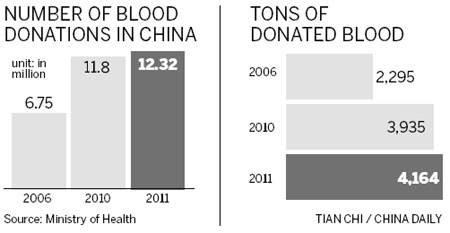
(China Daily 06/13/2012 page5)
